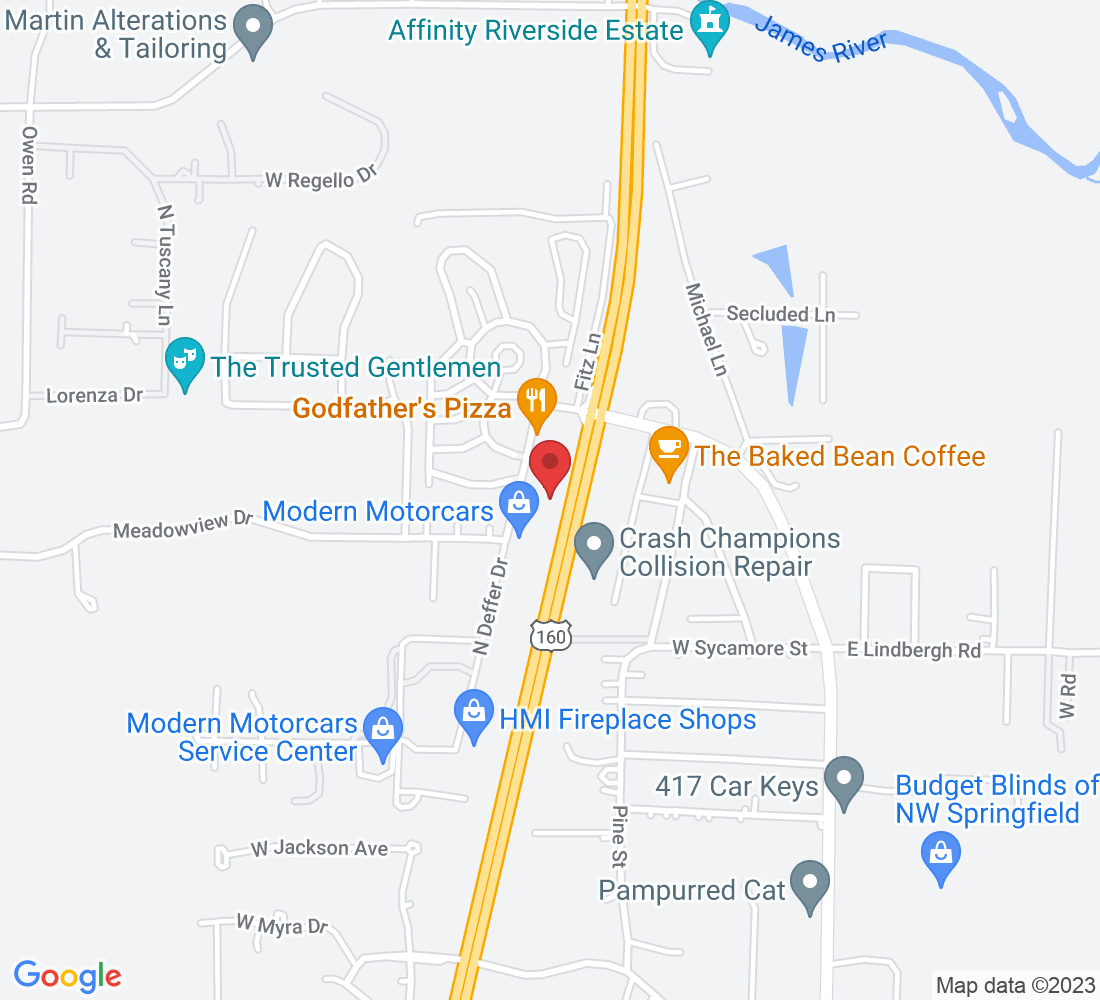
Welcome to Ozark Functional Wellness
CHIROPRACTIC | ACUPUNCTURE | FUNCTIONAL MEDICINE

At Ozark Functional Wellness,
you will be treated as a person, not just another number. It is my goal to get you firing on all cylinders and have you living your best life...pain free.
Our hours vary. If you need special hours contact us with your request. We are a cash practice (we take credit cards). Our new patient exam and adjustment is $60. It takes approximately 25-45 mins, start to finish. X-Rays and other imaging can be ordered on a “as needed” basis. If you have prior imaging, we would love to take a look at it!
Why Ozark Functional Wellness?

Search for the Root Cause
Oftentimes, the pain or discomfort is not where we think it is. My job is to search for the root cause of the problem and not just treat the symptoms. This could be as simple as a joint out of place putting pressure on a nerve to a food sensitivity that is causing you to have headaches.

Holistic Approach
A holistic approach to health care means not just looking at one part of the body as if it exists by itself. Looking at the body, mind and spirit as a whole system is how we find balance.

Families Welcome
I love to see the whole family. I have families that drive from an hour or more away to see me. From babies to adulthood, everyone should be functioning at their highest degree.

Activator Techniques Used
Whether you are scared to be "popped"/"cracked" or have osteoporosis, we have gentle techniques available. I tend to use this type of tool on very young children and people that have rigid guarding muscles.

Emphasis on Muscular Involvement
Dr. Gross was a massage therapist for 16 years and this definitely influences his approach to Chiropractic care. He likes to test, then treat, then test again to be sure that there was a measurable improvement.
We have a LOKI
Loki is the Office Ambassador and loves to greet our patients. He is here for you if you need someone to pet just in case you are stressed. Or he can lay in his little bed and sleep. Loki is a Boston Terrier and unusually calm for his breed when he is on task. He is also our doorbell, so he will probably announce you when you arrive. We look forward to meeting you.
Why Ozark Functional Wellness?

Search for the Root Cause
Oftentimes, the pain or discomfort is not where we think it is. My job is to search for the root cause of the problem and not just treat the symptoms. This could be as simple as a joint out of place putting pressure on a nerve to a food sensitivity that is causing you to have headaches.

Holistic Approach
A holistic approach to health care means not just looking at one part of the body as if it exists by itself. Looking at the body, mind and spirit as a whole system is how we find balance.

Families Welcome
I love to see the whole family. I have families that drive from an hour or more away to see me. From babies to adulthood, everyone should be functioning at their highest degree.

Activator Techniques Used
Whether you are scared to be "popped"/"cracked" or have osteoporosis, we have gentle techniques available. I tend to use this type of tool on very young children and people that have rigid guarding muscles.

Emphasis on Muscular Involvement
Dr. Gross was a massage therapist for 16 years and this definitely influences his approach to Chiropractic care. He likes to test, then treat, then test again to be sure that there was a measurable improvement.

We have a LOKI
Loki is the Office Assistant and loves to greet our patients. He is here for you if you need someone to pet just in case you are stressed. Or he can lay in his little bed and sleep. Loki is a Boston Terrier and unusually calm for his breed when he is on task.
He is also our doorbell, so he will probably announce you when you arrive We look forward to meeting you.
Join our Wellness Club!
The Functional Reset Membership entitles you to:
Exclusive library of videos and other resources from nutrition to acupressure.
A monthly treatment - Chiropractic, Acupuncture, or Functional Medicine.
Discount on subsequent visits.
Discounts on select supplements and specialty labs.
Weekly Access to the New Wellness Lounge!
Welcome to the New
WELLNESS LOUNGE
Your 30-Minute Reset
Step into the Wellness Lounge — a calming space designed to help you relax, recharge, and restore your body and mind.
Each 30-minute session combines advanced therapies with deep relaxation:
💺 Zero-Gravity Chair — take pressure off your spine and joints
🌡️ BioMat Far-Infrared Heat — soothing warmth to relax muscles and support rest
🟥 Red Light Therapy (660nm & 850nm) — boost circulation, recovery, and skin health
🎧 Neuroacoustic Music — sound therapy to calm the mind and reduce stress
🛋️ Weighted Blanket (optional) — gentle grounding for comfort and relaxation

How It Helps
Ease tension in muscles and joints
Support circulation and recovery
Reduce stress and improve sleep quality
Give you a much-needed mental reset
Functional Reset Members: 1 weekly session (30 minutes) included
Non-Members: $20 per visit
Testimonials
Really took his time...

I started seeing Dr Gross just after my insurance chiropractor copay jumped from $5 to $60! And less than a month later, I was involved in a super low-impact rear end collision. Thank goodness for Dr Gross!
I never in a million years would have thought that small bumper tap would cause whiplash, but it did. I’m so thankful that Dr Gross worked around my work schedule and was able to see me and TAKE THE TIME to work on giving me range of motion instead of just doing a quick adjustment before the next patient was at his door.
I’ve been to several chiropractors over the years and I not only recommend Dr Gross but I trust him.
- Edith S. Springfield, MO
Kind and compassionate...

Dr Gross is very kind, compassionate and knowledgeable with his care. I have been seeing him for some ongoing neck and upper back issues and would highly recommend him!
I really appreciate that he takes as much time as is needed to get you feeling better before leaving. No matter what part of my body is hurting whether feet, wrists, hips, back or neck he will do what he can to bring relief and will give me tips on what I can do at home to help as well. He incorporates soft tissue work into his treatments which has been really effective in helping me.
Finding a Functional Medicine Chiropractor that is affordable has been such a blessing. He is there to help his patients get well! Whether you have on-going chronic issues or just want to maintain wellness through Chiropractic care, I would recommend checking him out!
-Jennifer C. Springfield, MO
No cookie cutter approach...

Dr. Gross is wonderful! His Chiropractic skills are the best I have encountered and he treats every individual based on their needs and problems. He takes his time talking with and evaluating each patient so no cookie approach of 15 minutes for each patient.
His knowledge of functional wellness and natural treatments is excellent as well and he takes the time to do an in-depth patient health questionnaire to assess the problems for the best treatment approach.
I highly recommend Dr. Gross for Chiropractic care and for any health issue or health mystery you might be struggling with.
- Michele R. Springfield, MO
Caring, compassionate...

Dr. Gross is caring, compassionate and always exceeds my expectations with his knowledge and treatment.
I highly recommend his care. He is knowledgeable in many modalities of holistic medicine and continually is pursuing additional education to improve care for his patients.
I first came to him when my chiropractor was on maternity leave. I found his care to be superior and have remained his patient from that point until now.
- Barbara G. Springfield, MO
Muscle work is key...

When I went to see Dr. Gross, I had a stiff neck and a “crick.”
He started by doing a massage, and then he did a manual adjustment. I felt so much better!! I've been a couple of times for the same problem, and he always fixes it. The massage is the key!
Dr. Gross is super knowledgeable and very thorough AND affordable! His goal is always to get to the root of the problem.
- Billie M. Springfield, MO
Sign Up for Our Weekly Newsletter
Our newsletter is packed with expert tips, holistic health insights, and practical advice on everything from herbal remedies to acupressure for different conditions—all designed to help you feel your best.
Functional Wellness Journal
Blog Posts Ozark Functional Wellness

What I’m Really Checking During an Adjustment (That You May Not Notice)
Discover what really happens during a chiropractic visit at Ozark Functional Wellness from muscle tension checks and joint mechanics to energetic resets and personalized recommendations. Learn how a c... ...more
Health & Wellness
December 01, 2025•3 min read

The Deep Healing Power of Far Infrared Therapy: Why This “Passive Treatment” Creates Active Change in Your Body
Learn how far infrared therapy helps reduce pain, improve circulation, relax muscles, and support deep recovery. The Wellness Lounge mats use heated crystals that produce infrared wavelengths to penet... ...more
Health & Wellness
November 24, 2025•5 min read

Tired of Chronic Pain? Here’s How to Calm Inflammation Naturally
Chronic pain and fatigue often trace back to inflammation. Learn 5 natural ways to calm inflammation—from omega-3s to lymphatic support—and how to take control of your healing with simple, daily strat... ...more
Health & Wellness
May 09, 2025•3 min read

Sulforaphane: The Super Compound in Your Veggies You Shouldn’t Ignore
Learn how sulforaphane—a compound found in broccoli sprouts and cruciferous vegetables—supports detox, reduces inflammation, boosts brain health, and helps your body heal naturally from the inside out... ...more
Health & Wellness
May 09, 2025•3 min read

Which Type of Magnesium is Right for You?
Not all magnesium is the same! Learn about 11 different types of magnesium and how to choose the right one for sleep, stress, digestion, brain health, heart support, and more. Find the form that fits ... ...more
Health & Wellness
May 04, 2025•5 min read

7 Natural Ways to Stimulate Your Vagus Nerve and Improve Wellness
Learn 7 simple, natural ways to stimulate your vagus nerve and shift your body into a calmer, healthier state. Support better digestion, mood, and stress resilience—no supplements required! ...more
Health & Wellness
May 04, 2025•4 min read
Frequently Asked Questions
Are you accepting new patients?
Absolutely! We love welcoming new patients. Call us or schedule a 30‑minute strategy session to get started.

Do you take insurance?
We don’t bill insurance, but we keep things simple and affordable:
Chiropractic or acupuncture sessions are $60 all‑inclusive—your exam, treatment, and any extra therapies like laser, ultrasound, or K‑Tape are included.
Functional Medicine: Initial consultation $150, follow‑ups $60, with labs and supplements customized to your needs.
We accept debit/credit cards, checks, cash, and HSA/FSA cards—so using your health benefits is easy!

What services do you offer?
We focus on root‑cause, whole‑body care through:
Chiropractic care for pain relief, posture, and mobility
Acupuncture for pain, stress, energy, and wellness
Functional medicine to uncover and treat the root cause of your symptoms

Can I book online?
Yes! All of our services can be booked online.
Chiropractic and Acupuncture – Book your $60 all‑inclusive sessions anytime.
Functional Medicine – We start with a 30‑minute Strategy Session (bookable online) to review your health history, talk through your goals, and make sure we’re a great fit to work together.

Good Faith Estimate
You have the right to receive a “Good Faith Estimate” explaining how much your healthcare will cost.
Under the current law, health care providers need to give patients who don’t have insurance or who are not using insurance an estimate of the bill for medical items and services.
You have the right to receive a Good Faith Estimate for the total expected cost of any non-emergency items or services. This includes related costs like medical tests, prescription drugs, equipment and hospital fees.
Make sure your health care provider gives you a Good Faith Estimate in writing at least one business day before your medical service or item, unless it is the same day of service in which, then expect the Good Faith Estimate before treatment is provided. You can also ask your health care provider, and any other provider you choose for a Good Faith Estimate before you schedule an item or service.
If you receive a bill that is at least $400 more than your Good Faith Estimate, you can dispute the bill. Make sure to save a copy or picture of your Good Faith Estimate.
For questions or more information about your right to a Good Faith Estimate, visit www.cms.gov/nosurprises
CONTACT US
Our Address
We are excited to see you at the new office.
1868 N Deffer Rd, Ste 5
Nixa, MO 65714
Email: [email protected]
Phone: 417-227-0737
Please send us a message if you have questions.
The quickest way to get in contact is call or text 417-227-0737.

Ozark Functional Wellness | 1868 N. Deffer Rd, Suite 5, Nixa, MO 65714 | 417-227-0737
Copyright© 2022 Ozark Functional Wellness, LLC All rights reserved
The information, including but not limited to, text, graphics, images and other material contained on this website are for informational purposes only. The purpose of this website is to promote broad consumer understanding and knowledge of various health topics. It is not intended to be a substitute for professional medical advice, diagnosis or treatment. Always seek the advice of your physician or other qualified health care provider with any questions you may have regarding a medical condition or treatment and before undertaking a new health care regimen, and never disregard professional medical advice or delay in seeking it because of something you have read on this website. No guarantee is provided or implied. Results may vary based on each patient’s physical health and adherence to the care plan designed by the doctor. These statements have not been evaluated by the United States Food & Drug Administration. These products are not intended to diagnose, treat, prevent, or cure any disease.


